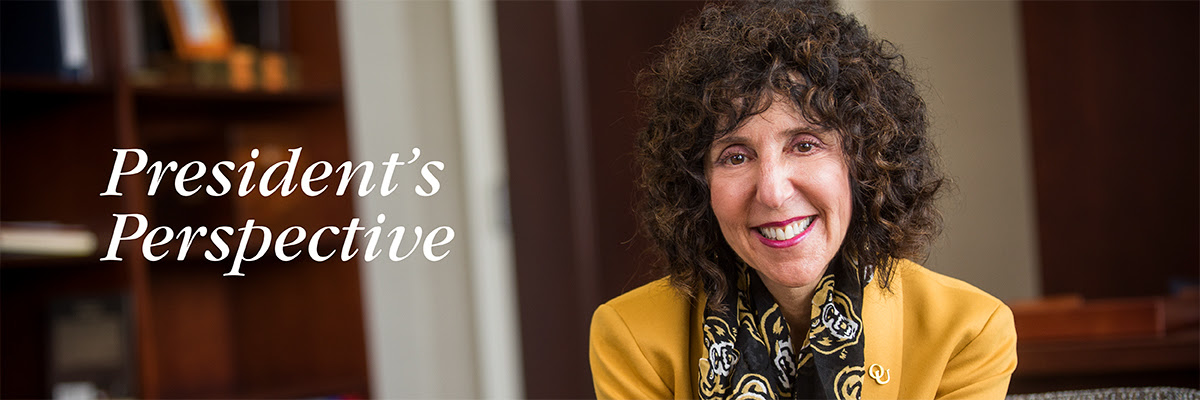- YouTube
- TikTok

One of the greatest points of pride about our nation today is that we live in a highly literate, technologically advanced society driven by an information-based economy.
And because of this reality, I submit that few issues in the public sphere these days are as important as the need for educators, business and civic leaders, along with politicians and other thought leaders to unequivocally take a stand in defense of a college education.
This was never more evident to me than when I recently witnessed the 55th graduating class of Oakland University, as we handed out more than 2,100 college degrees.
OU Commencement Spring 2018
It was a moment of great personal pride for the individual students and their families. And another moment of Grizzlies pride for the entire OU community.
Most importantly, however, it marked the fulfillment of a promise we make to every student who enters our campus and our fellow Americans: to develop highly educated and in-demand professionals to help drive our economy and to also develop community and civic leaders who will feel empowered enough to be role models for others and aspire to greatness.
That is the fundamental difference between a single-minded focus on a technical, certificate driven education and a robust liberal arts education.
Yet, many educators these days find themselves confronting a mindset among a growing number of people who suggest that earning a four-year college degree is an increasingly obsolete and overly expensive proposition.
They point to the growing information technology sector of our economy and suggest certification in computer technology, medical technology, skilled trades or an associate degree from a community college as more practical and economical investments of a young person’s time and resources.
Technically trained workers are important. And students who want that education should be encouraged to pursue it. However, a college degree is not only critical to a successful and rewarding career but plays a key role in character and leadership development.
The fact is, people who lack a four-year college degree are often limited in their upward mobility in the workplace and even career options. In today’s economy, most are limited to basic jobs in service, construction, and manufacturing industries.
A report by the American Community Survey that was released by the U.S. Census Bureau showed most college graduates will earn a million dollars more over their lifetime than someone who has never attended college. And, a master’s degree often results in an additional $500,000 more.
Frankly, it is precisely because our economy is rapidly changing from manufacturing-based to information and technology-based, that a college degree today may very well be more important now than at any time in our history.
Employees with a college degree more often have acquired the necessary interpersonal and effective communication skills to achieve greater mobility within the workplace. And are thus better able to access higher-level careers and leadership positions with an organization.
However, beyond the acquisition of specific, in-demand skills sets needed to earn a solid income and to secure a stable job, a college education also holds an intrinsic value.
OUWB student training
The importance of personal growth, an increased understanding of our diverse and multicultural nation, interconnectedness with the world, and an enlightened sense of self and others cannot be overstated in a civil society.
Obviously, as in any human endeavor, none of this is guaranteed with a college education. But, in the words of the philosopher Matshona Dhliwayo, “Your mind shines brightest when you enlighten others; your heart, when you encourage others; your soul, when you elevate others; and your life when you empower others.”
As Oakland University’s seventh president, I am committed to enlightening and empowering the young people who come to our campus seeking knowledge and their place in this world.
That is what we do here. At Oakland University, we help our students to take root; to understand their leadership capacity and develop those skills. We educate them. We enlighten them. We build their confidence as citizens and we provide them with the wings to fly.

Ora Hirsch Pescovitz, M.D.
President


 May 24, 2018
May 24, 2018 By Ora Hirsch Pescovitz, M.D.
By Ora Hirsch Pescovitz, M.D.

